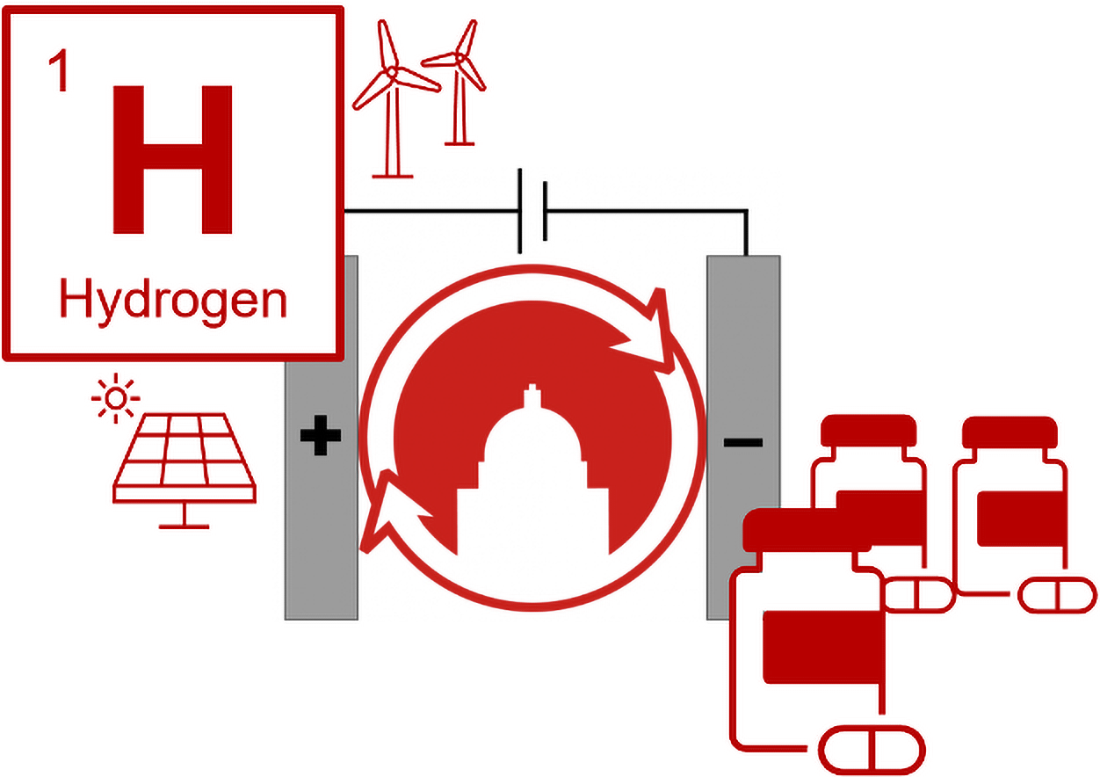
21 Aug New approach shows hydrogen can be combined with electricity to make pharmaceutical drugs
By Will Cushman, UW–Madison
The world needs greener ways to make chemicals. In a new study, University of Wisconsin–Madison researchers demonstrate one potential path toward this goal by adapting hydrogen fuel cell technologies. These technologies are already used to power some electric vehicles, laptops and cell phones.
“The chemical industry is a massive energy consumer, and there is a big push to decarbonize the industry,” says Shannon Stahl, a professor in the UW–Madison Department of Chemistry who guided much of the research. “Renewable electricity can provide energy to produce chemicals with a much lower carbon footprint than burning fossil fuels.”
The conventional process uses large quantities of zinc metal as the source of electrons, but handling zinc is complicated and generates large amounts of environmentally unfriendly waste. Working with scientists at the pharmaceutical maker Merck & Co. Inc., UW–Madison chemists and engineers sought to develop a more sustainable method to manufacture ingredients needed to make many types of drugs.
In their search for an alternative process, the researchers took inspiration from hydrogen fuel cells, which use hydrogen gas as the source of electrons to generate electricity. Read more …



